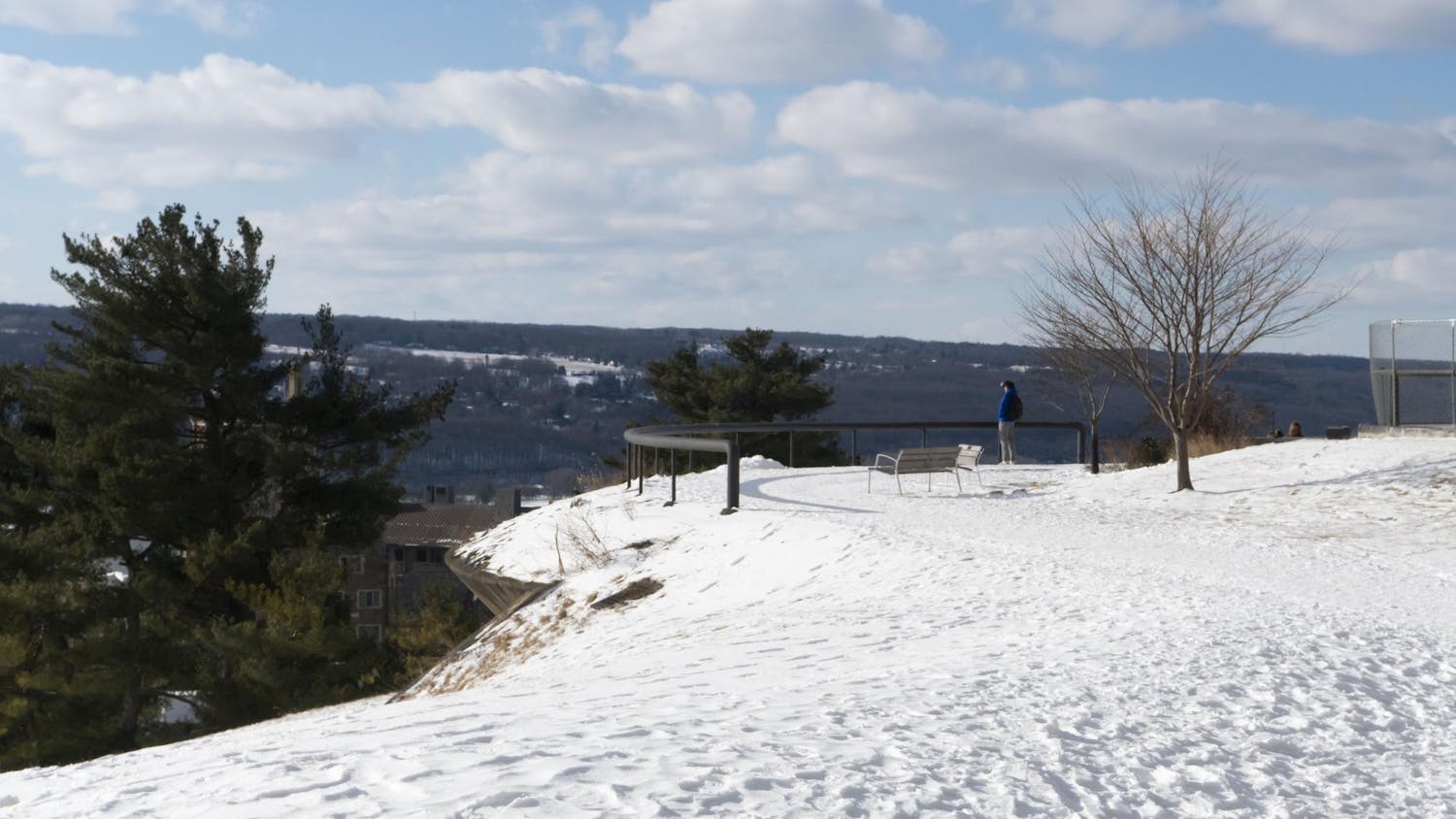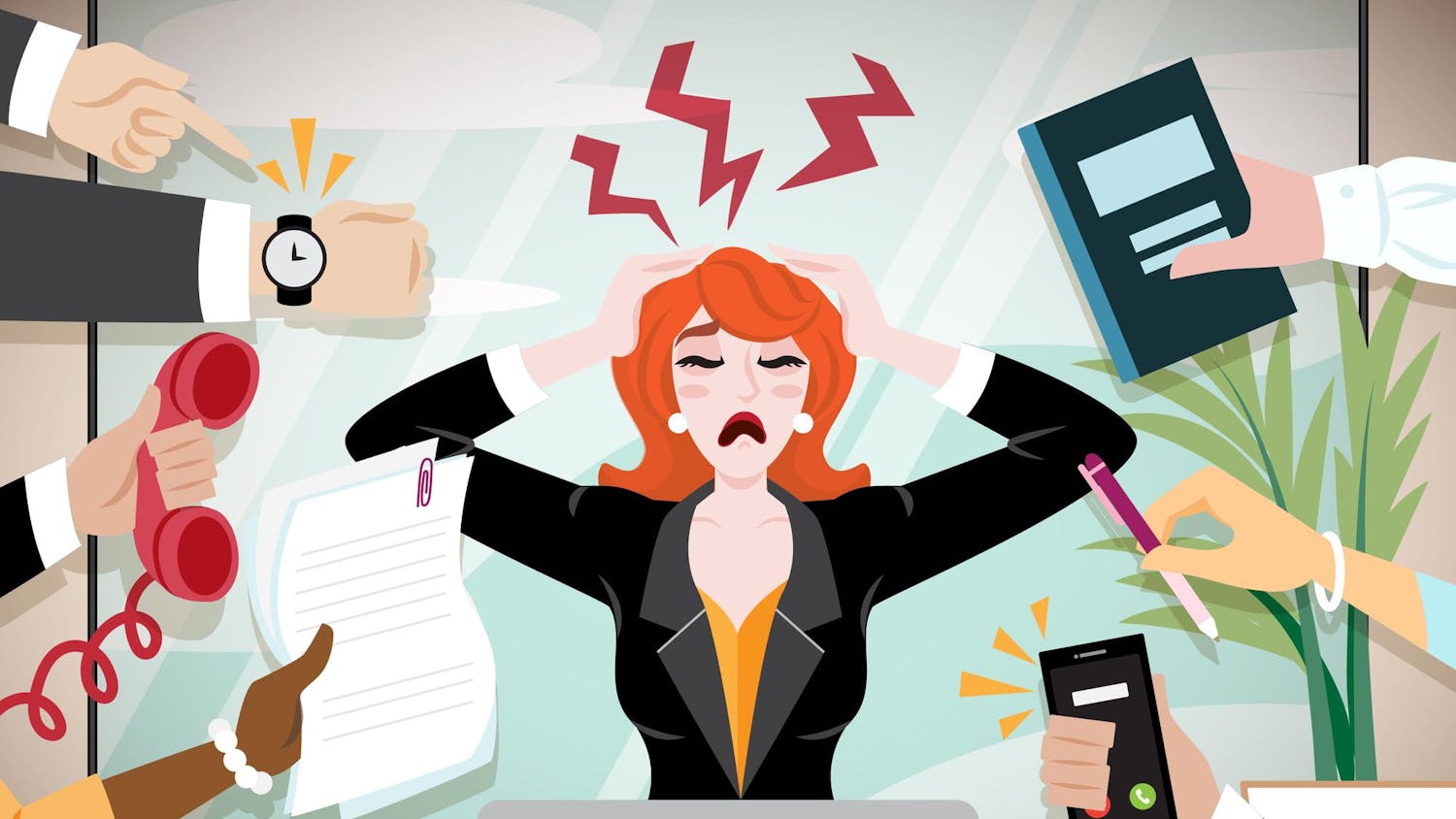By Maia Mehring
The 22nd annual ILR Labor Roundtable is right around the corner, with the date for representatives in labor-related professions across the country to converse with students set for Friday, November 15.
The ILR Labor Roundtable is a collaboration between the ILR School and the ILR Worker Institute in the form of an event bringing labor professionals and students together in hopes of “introducing practice to people pursuing the study,” said current Labor Roundtable Coordinator Zohar Grinvald ‘24.
Beginning at 1:15 PM and ending at 5:00 PM on the 15th, students can connect with those working in labor (primarily union leaders, negotiators, and attorneys) on an intimate level and learn about the current state of the labor movement at large.
Some of this year’s roundtable speakers include Michael Herron, an arbitration advocate and contract negotiator at the United Federation of Teachers, Sarah O’Quinn, senior government relations officer at the International Labour Organization, and Emily Rodekhor ‘15, vice president of the Ithaca Fire Association.
The ILR Labor Roundtable event was first organized 22 years ago by students with the guidance of Professor Kate Bronfenbrenner ‘76, who is also the director of Labor Education Research at the ILR School and an alum herself.
“When students first get to ILR, there is an executive and management event where they learn all about corporations,” she told the Sun. “But there was nothing to introduce them to labor.”
Thinking back to the original founders’ intent, Bronfenbrenner stressed the importance of diversity among the professionals chosen to participate in the event. “[The founders] made a point of making sure that those who were invited were people from all different occupations in the labor movement,” she said. “[This] gives students an opportunity to see what the possible careers in labor are and what the new generation of the working and labor movement is.”
Beyond diversity in occupations, ensuring students saw themselves represented in terms of gender and race was a critical component of the mission.
“Many students had a stereotype of this older White guy in a gray suit and patent leather shoes that was from the 1950s. [The participant lineup] was always a mix of men and women and people of color,” Bronfenbrenner said.
Ellen Stutzman ‘04, a founder of the first roundtable at the ILR School and now chief negotiator for the Writers Guild of America West, echoed Bronfenbrenner’s sentiments regarding the purpose of the event. A student of Professor Bronfenbrenner’s, Stutzman wanted to expand opportunities available to students to learn about careers in the labor movement.
“It was a piece of my labor activism at Cornell, which is where I got interested in the labor movement,” Stutzman recalled. “The whole experience made me want to work in the labor movement, and the labor roundtable was great because you got to see a breadth of careers.”
The day is organized so that students get to speak to each professional for 20-30 minutes. Before being seated at tables in the Statler’s Carrier Ballroom, visitors will give a 30-second pitch about who they are and their careers. Participating professionals rotate between the tables and students can come and go as they please.
“[Conversations include] anything from what is actually going on in labor right now to what a job in labor means,” Grinvald said. In her experience, roundtable interactions with union leaders, negotiators and arbitrators, attorneys, and others have often been student-guided through targeted questions for the professionals.
Though orchestrated by the ILR School, students of all majors and backgrounds are invited to the event. After helping coordinate last year’s roundtable, Rachel Marcus ‘26 was particularly enthusiastic about encouraging students studying other disciplines to attend.
“The people marketed towards the most are those who may want to pursue a career in the labor movement,” she said. “However, a lot of people don’t really know about the labor movement in general.”
Grinvald reiterated that the roundtable is applicable to courses of study outside of ILR. “Work is relevant to everyone. Every industry, every profession,” she said.
UAW Local 2300 President Christine Johnson will participate in the event, creating an opportunity for students to engage in meaningful conversations regarding the recent United Auto Workers strike on campus and the agreement workers made with the university.
Attendees have the opportunity to develop connections that lead to internships and jobs going forward. Grinvald explains that coordinators have also experienced a “community-building side effect” as a result of their networking efforts while finding participants.
Bronfenbrenner expressed the value of the skills student coordinators hone through planning a roundtable event of this caliber. “The students who are actually on the planning committee get to learn to plan an event like this, and the contacts they meet each year end up being people who call me asking for the students’ names wanting to hire them.”
Grinvald recommends that students prepare meaningful questions for the professionals ahead of time. “They’re taking time out of their day to talk to you. They’re expecting questions. Students get to really chart the event.”
Stutzman highlighted the power insight into the labor movement gives students. “Unions are the best counterweight that exists to corporate power in this society.”
“I think if you’re at all interested in the labor movement, either working in it or just learning more about it, it’s a really great opportunity,” said Marcus. The speakers are different every year, and they bring with them diverse lived experiences and stories to share with students.
Maia Mehring is a sophomore in the School of Industrial and Labor Relations. She can be reached at mjm743@cornell.edu.











